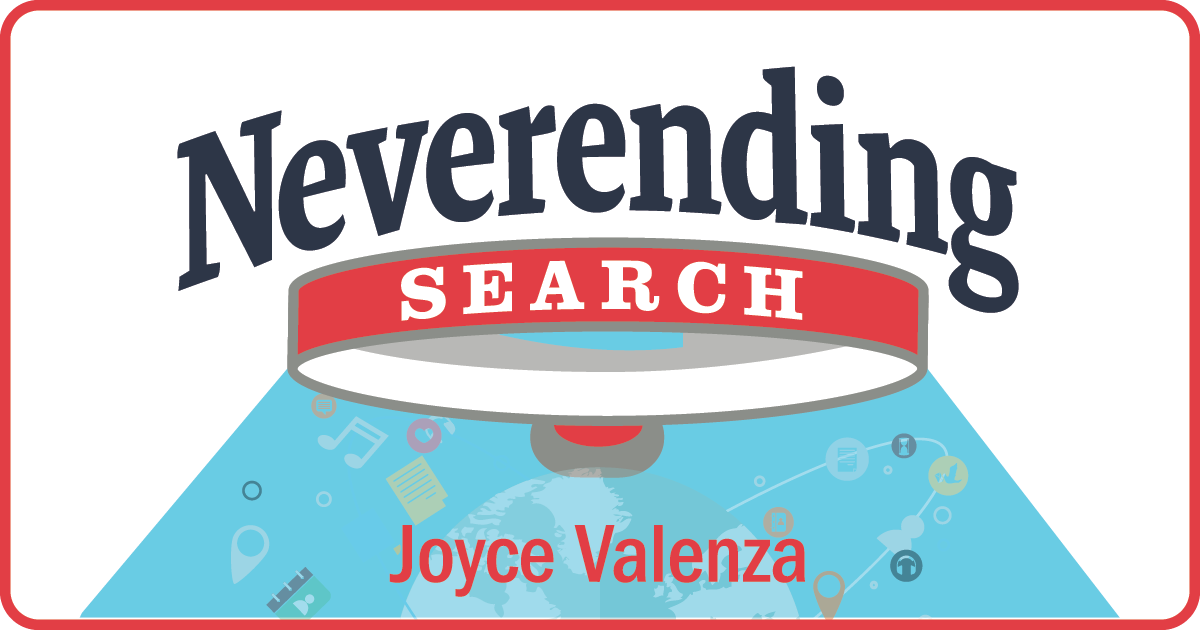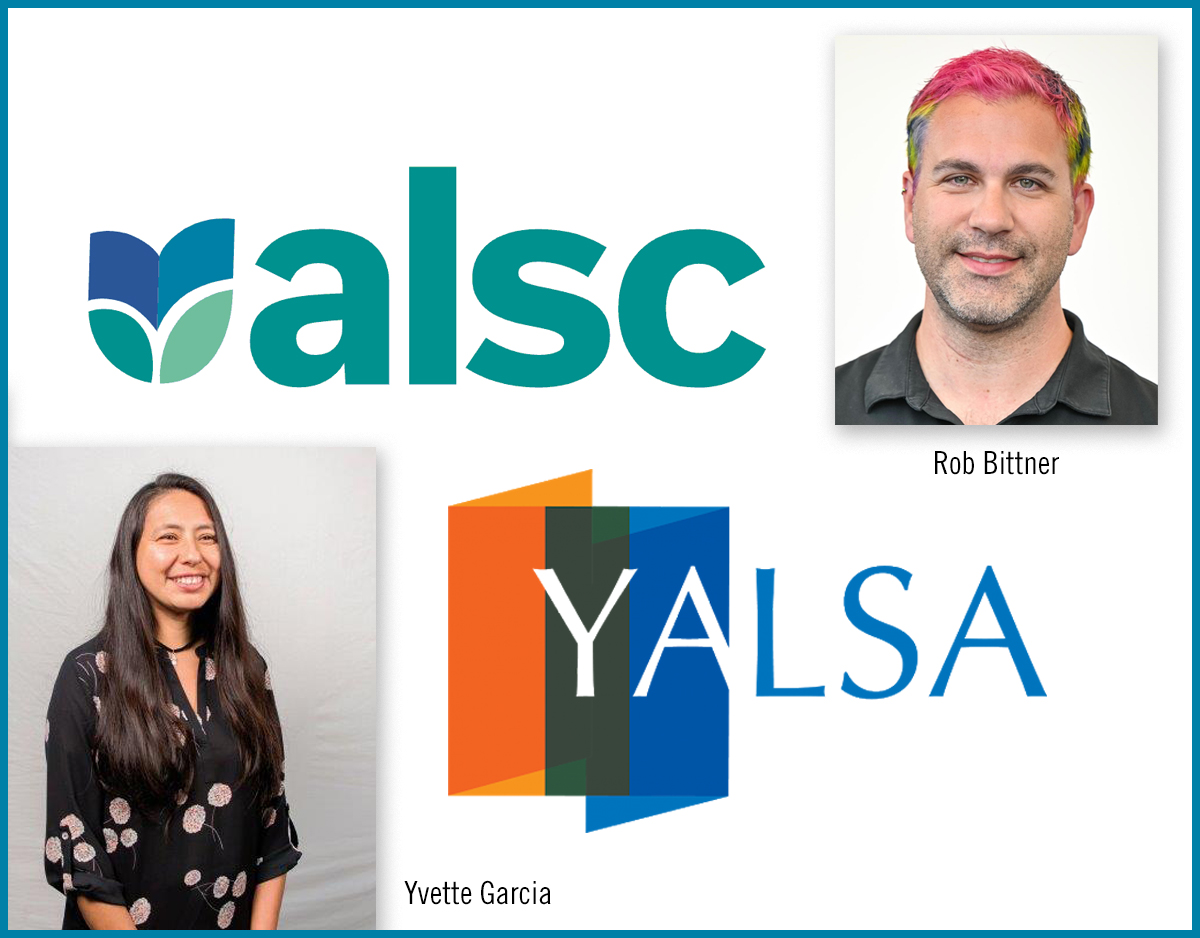SCROLL DOWN TO READ THE POST
The SLIDE Study: A chat with Deb Kachel (Part 2) And exploring the interactive data tools

In my last post, I shared news of the School Librarian Investigation—Decline or Evolution?, or SLIDE research project. The study emphasizes a critical equity issue: our most vulnerable students are those most impacted by a declining numbers of school librarians.
I recently chatted with project director, Deb Kachel to dig a little deeper into what the study means and her hopes for its impact and use. Deb’s partner in this IMLS-funded project is principal investigator Keith Curry Lance.
ADVERTISEMENT
ADVERTISEMENT
Joyce: What’s different about this study and why is sharing these data so important?
Deb: Well, I think what you should know is that Keith and I submitted three IMLS grant proposals before this study was funded. The third time was the charm.
We actually have been working since 2017, to try to get this data project funded. And the reason that it is so important to us, is because there is a lot of documentation that is not out there anywhere else. For example, one of the things that we learned was that the majority of Hispanic school districts are twice as likely not to have school libraries as the majority non-Hispanic districts.
This is a piece of hard data relating to equity. It’s a statistic that now we can put out there because we have documented evidence. Before, librarians or education leaders could say, well, we think that most of the schools that have a high number of Hispanic students don’t have school librarians. It was never documented.
This study is different because Keith and I finally can put strong evidence, statistics and facts out there for school administrators and school decision makers to really look at and say: You know what? We do have an equity problem.
Many librarians and education leaders will say that we’re losing school librarians because library aides and paraprofessionals are now being hired to run the library. Now we have documented evidence that that’s not exactly true. While it is true in certain states like Arizona, it is not in the majority of states. Districts are also eliminating library clericals and paraprofessionals at alarming rates.
It is alarming because in school districts that do have librarians but don’t have any clerical staff, districts are placing professional librarians in clerical positions. So, we’re putting professional librarians in positions in which that they cannot possibly win.
So, administrators might say, “Well, I’m getting rid of the librarian, because I can have somebody else check books in and out.” Actually the reason a professional is checking books in and out, is because you’re not supporting the program as it should be supported. You are placing a professional in a clerical role.
Joyce: Who should care and why about SLIDE?
Deb: I’m really hoping that we can get this message out to school administrators, school board members, and those people who make decisions on how they staff their school library services. It is difficult to get information about school libraries out to upper level administrators. We know the library community cares, but until we get school administrators and those who make those kinds of decisions to care, we’re not going to be able to change this landscape.
Joyce: I know that you are planning to engage in interviews as a next qualitative step in your research. Can you describe what this is going to look like and what you hope to learn?
Deb: One of the things we uncovered by looking at the free and reduced meals program and the per-pupil expenditures of districts is documentation that that says the loss of school librarian positions is not completely about money. Prior to this study, we did not have the evidence that says it’s not solely about money in every case.
So if it’s not completely about money, what is actually driving these changes? What we really hope to learn from the interviews is what are the priorities, the perspectives and the experiences of the school decision-makers that make them say either that we have to hire more school librarians or that we’re going to eliminate school librarians, we don’t need them.
By digging deep into the minds of decision makers, we can better figure out what’s really behind these changes. We know that every district is likely to be different, but we hope that if we can complete 100 interviews, we will get a national, large-picture perspective of what’s really going on.
Joyce: So when are these interviews going to happen?
We hope to begin scheduling them at the beginning of this coming school year and we anticipate that most of the interviews will occur January through March, which seems to be the time when we believe school administrators will have a little bit of breathing space, we know their lives are very chaotic and at that point they might be able to give us an hour of their time for an interview.
Joyce: How will you select those participants?
Deb: Using the NCES (National Center for Education Statistics) data from 2015/2016 school year to the 2018/2019. school year–a four-year time span, we plan to continue developing a list of all the school districts out of the nearly 13,000 nationwide that either gained or lost FTEs school librarians and organize it by state. Currently, we have a target list of school districts to start with and we plan to reach out to our state intermediaries to ask them to help us to connect with school administrators in those districts.
Our data is the most recently published NCES data available at the time. To learn more about the current situation, we’re going to ask our state intermediaries, if they know of some districts that have recently added or eliminated school librarian positions to contact them as well.
Joyce: Do you suppose some districts will describe caring about libraries more than than others? And do you think you’ll get honest answers from those who’ve made decisions about dropping the positions?
Deb: That’s the biggest challenge and that is why we’re spending so much training and talking with our interviewers. We’re planning test interviews. And, you’re right. It is going to be difficult to get school administrators to be honest about why they’ve eliminated positions. They are trained PR people and they we suspect they will prefer to spin their responses in a positive way so that their district does not get any negative press.
Joyce: So you will be keeping identifiable information confidential?
Deb: We’re going to say up front that the interviews are confidential. We want to know what you really think. Please be honest; please be candid. We won’t be identifying you or your district without permission.
Joyce: What do you suspect you might discover in the interviews? Do you have any hunches?
Deb: This is a personal view. If I find a person who is a strong school library advocate, somewhere in their past they have had an experience with a really good school librarian. It seems to me that once those people have had that experience, then they want to hire that type of person for their school districts. School leaders who have had very poor experiences with school librarians sometime in their professional past develop the attitude that we don’t need them.
And as our school administrators become younger and younger, with constant turnover in administrative positions, many of these new school principals and upper level district leaders have never worked with a school librarian in any of their schools. That to me is really concerning.
Joyce: This is especially a problem in cities like Philadelphia, where there have been no librarians in quite some time, perhaps a generation.
Deb: Yes. And another thing that worries me is that many of the people we interview have eliminated librarians, I know we’re going to get the response, “Well, we don’t have the money.” But when we dig beyond, I predict we’re going to see descriptions about morphing and blending of job roles. They may say, “Well, we have a STEM lab and the teacher who’s in charge of that is teaching some elements relating to information usage, and digital citizenship, which, you know, traditionally school librarians may have done. Now somebody else is doing it.
One of the things we discovered in the research is that the districts seeing the steepest decline of school librarians are the small rural school districts, and there are tons of them across the United States. In those small, rural districts, where they might not have the luxury of hiring them all–a school librarian, a STEM teacher, a computer lab teacher–they are likely to hire one professional for multiple roles.
Joyce: I wonder if these small rural districts face an additional challenge relating to a limited number of local graduate schools that prepare librarians.
Deb: Definitely. When we did the state survey it was pretty shocking to see the correlation between the number of universities that prepare school librarians, and the number of actual school librarians employed in schools in that state.
There are two things I wonder about with that. Certainly, there’s a pipeline issue, it is really difficult for a district to find a certified school librarian. I can see where they’d say, yeah, let’s take that English teacher. She’s pretty good. Let’s put her in the library.
But the other thing that I’m wondering about relates to states with several school library preparation universities. Is that academic leadership and advocacy being spread those through universities to their school librarian alumni?
Anecdotally, we see that a lot of university faculty very active in the state school library organizations. Is there an infiltration of leadership and advocacy coming from those universities that also helps to encourage school librarian employment in those states? We don’t have any evidence of that, that was not in scope of study, but it’s something that I really wonder about.
Joyce: What about state or district level mandates? Are they important?
Deb: In states with any kind of education code that mandated any kind of school librarian, whether enforced or not enforced, had overall better school library employment than states like Pennsylvania and New Jersey, which have no language about requiring school librarians. Ten states and D.C. have legal requirements.
In Pennsylvania we have a guideline that suggests one certified librarian per district. It is totally ignored and unenforced and I have a feeling that if we interview any Pennsylvania school decision makers, we will discover they don’t even know about it. As you will see, in the recent Teacher Librarian (pp.. 49-52) article, some schools had leveled staffing to a .5 position for every 500 students.
We also have evidence here in Pennsylvania, that at least one district claims they meet the staffing guideline because they point to a full-time classroom teacher who just happens to hold a school library certification. They say they meet the criteria, even though they have library aides and only library aides, in all of their district libraries.
Joyce: So, how should librarians use SLIDE study data with others? What do you hope will happen with this data? And what are your recommendations for analysis and interpretation?
Deb: As you know, we’re spending a lot of time with a web designer to develop interactive tools that now allow us drill into local data and perform comparative analysis–state to state, district to district. That will allow state officials, district officials and the general public to go in and really examine staffing issues from an equity lens. I’m really hoping that those people will then take that hard data and evidence back to their school districts back to the states and say, “We have a problem.”
This type of meaningful analysis tools has not ever been available, which is another unique point about the SLIDE project. I’m really hoping that local districts and states will pull this data and and say to whoever makes the decisions in their district, “Here’s what we’re not doing right by our students. We can see the equity issues with ethnicity, poverty, race, and compare us to other districts that have a similar student makeup, and let’s find out how they are doing it better. And maybe we can learn something from that and offer those students better services than we do right now.”
And if that were to happen, I would be so happy.
Joyce: Thanks, Deb. I am excited to explore and spread the word about the interactive data tool too.
Here are some examples of the more general State Survey data and some drilled-down data generated using the Advanced Search Tool which offers the ability to compare districts and states using data elements as populations, staffing, funding, ELL, free and reduced lunch, student ethnic demographics and more. Links are automatically generated for your data explorations and data may be exported as a CSV.

Map of states mandating school libraries 
Data table of states mandating school librarians 
Data table of states with higher education institutions preparing school librarians sorting by states with the greatest number. 
Map of states with higher education institutions preparing school librariansy/




Pennsylvania district comparisonshttps://libslide.org/data-tools/advanced-search/?saved=2589
Learn more about the SLIDE study:
- SLIDE Project
- SLIDE State Survey
- On Facebook and Twitter
- Kachel, Debra E. 2021. “Data Speaks: Addressing Equity of Access to School Librarians for Students.” Teacher Librarian 48 (3): 49-52.
- Lance, Keith Curry and Debra E. Kachel. (2021, July). Perspectives on school librarian employment in the United States, 2009-10 to 2018-19. SLIDE: The School Librarian Investigation—Decline or Evolution?
- Lance, Keith Curry, and Debra E. Kachel. 2021. Press Release: Most Vulnerable Students Impacted by Declining Numbers of School Librarians. July 19.
Filed under: equity, research, school librarians, school libraries
About Joyce Valenza
Joyce is an Assistant Professor of Teaching at Rutgers University School of Information and Communication, a technology writer, speaker, blogger and learner. Follow her on Twitter: @joycevalenza
ADVERTISEMENT
SLJ Blog Network
Instagramming ALA 2025 (Part II)
Review of the Day: Freya and the Snake by Fredrik Sonck, ill. Jenny Lucander
Love in the Palm of His Hand, vol. 1 | Review
DIY Teen Makerspace: Neon Sign Painting
The Classroom Bookshelf is Moving
ADVERTISEMENT
ADVERTISEMENT









